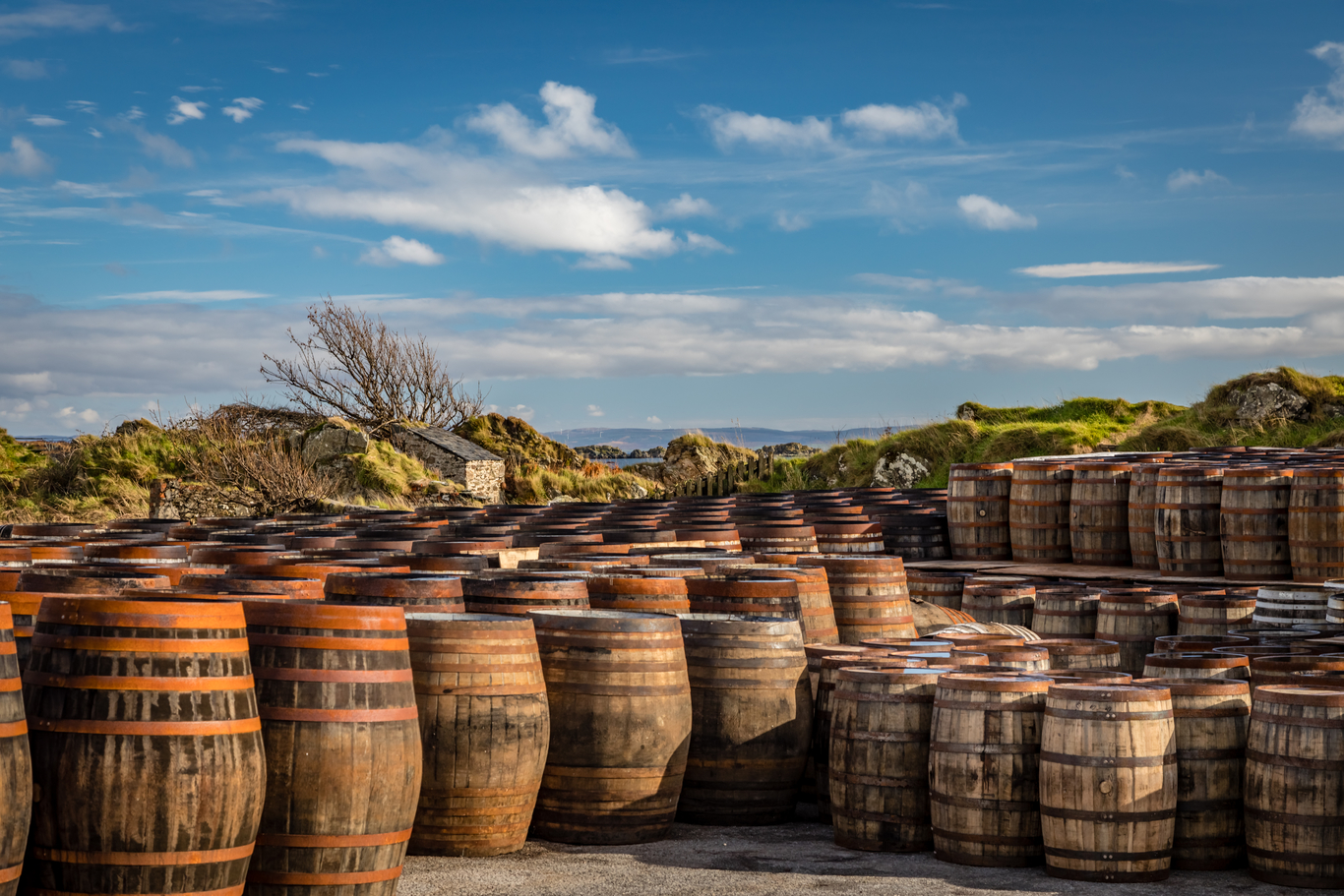Irish exporters worry as the WTO has cleared the US to impose $7.5 bn of EU tariffs
Industry groups are concerned that Ireland could be hit by tariffs that would have a ‘highly detrimental impact’.
IRISH DRINKS PRODUCERS are among the groups that could be affected as Europe is braced for tariffs after president Donald Trump was given the go-ahead to impose $7.5 billion worth of levies on certain EU exports entering the US.
The World Trade Organisation (WTO) published its decision this afternoon, authorising the imposition of sanctions on $7.5 billion annually worth of EU goods entering the country in a long-running aircraft subsidy dispute. The case is the largest value award in the WTO’s history.
The decision comes as tensions have escalated between the US and the EU trading bloc in recent months.
The office of the US Trade Representative is expected to announce details of which products will be affected, with whiskey and butter among the goods included on the original list of goods drawn up earlier this year. It is expected that the final list will be narrowed.
In a statement in response to the ruling, the Irish Exporters Association (IEA) has called for a “fair and balanced approach”.
IEA chief executive Simon McKeever made reference to another case against Boeing that will be decided by the WTO in the coming months and said “a tit-for-tat approach to damaging each other’s economies will not help anyone”.
“With the continued possibility of a no-deal Brexit on 31 October and the associated shock to Irish exporters, we are particularly concerned by US threats to place tariffs on important Irish exports such as Irish whiskey or agricultural goods,” he added.
Though the Trump administration has ruffled many trade-relation feathers, this decision today is part of an almost 15-year dispute between Washington and Brussels, with the US claiming plane-makerAirbus has been given preferential treatment over rival Boeing when it comes to aircraft subsidies.
Patricia Callan, the Drinks Ireland director, said, “There are no winners in a trade war, just losers, particularly among consumers.”
She added that her main concerns are with Irish whiskey and Irish cream liquer which “could be subject to tariffs in their largest market”.
Last year, 78.5 million bottles of both Irish whiskey and Irish cream liquer were sold in the US, Callan pointed out.
“These sales help support thousands of jobs across the US and in Ireland, north and south, including in the agricultural sector which supplies Irish barley and cream for these products,” she said.
“With Brexit looming, the imposition of tariffs would have a highly-detrimental impact on the all-island economy, particularly for Northern Ireland where spirits exports to the US have greatly supported economic revitalisation since the Good Friday Agreement.”
Business group Ibec has called for “urgent talks” after the WTO’s decision today. Its director of EU and international affairs, Pat Ivory, said business links between Ireland, the EU and the US are “vitally important to global supply chains”.
He said there is “urgent need” for the EU Commission and US to negotiate a “speedy resolution to the dispute”.
“Any new tariff barriers will have significant economic and employment implications on both sides of the Atlantic, potentially hitting Irish businesses when they are coping with Brexit,” he said.
Other sectors affected
Tariffs on certain EU goods with a trade value of $21 billion were first proposed by the US back in April, with a list of a further $4 billion worth of additional EU goods published at the start of July.
While whiskey is of concern, other goods that may be impacted by the tariffs include both manufactured and agricultural goods like cheese, ham and butter.
Tariffs may also affect the aviation sphere, with levies placed on EU-manufactured Airbus jets likely to be placed on US planes and goods next year.
Ryanair boss Michael O’ Leary said earlier this week at a Reuters event in London that he was “not sure the aviation industry either here in Europe or the US can survive a tariff war between Boeing and Airbus – there are only two suppliers”.
He said if the tariffs significantly increased the cost of aircraft then the company would have to look at delaying deliveries.
Get our Daily Briefing with the morning’s most important headlines for innovative Irish businesses.






